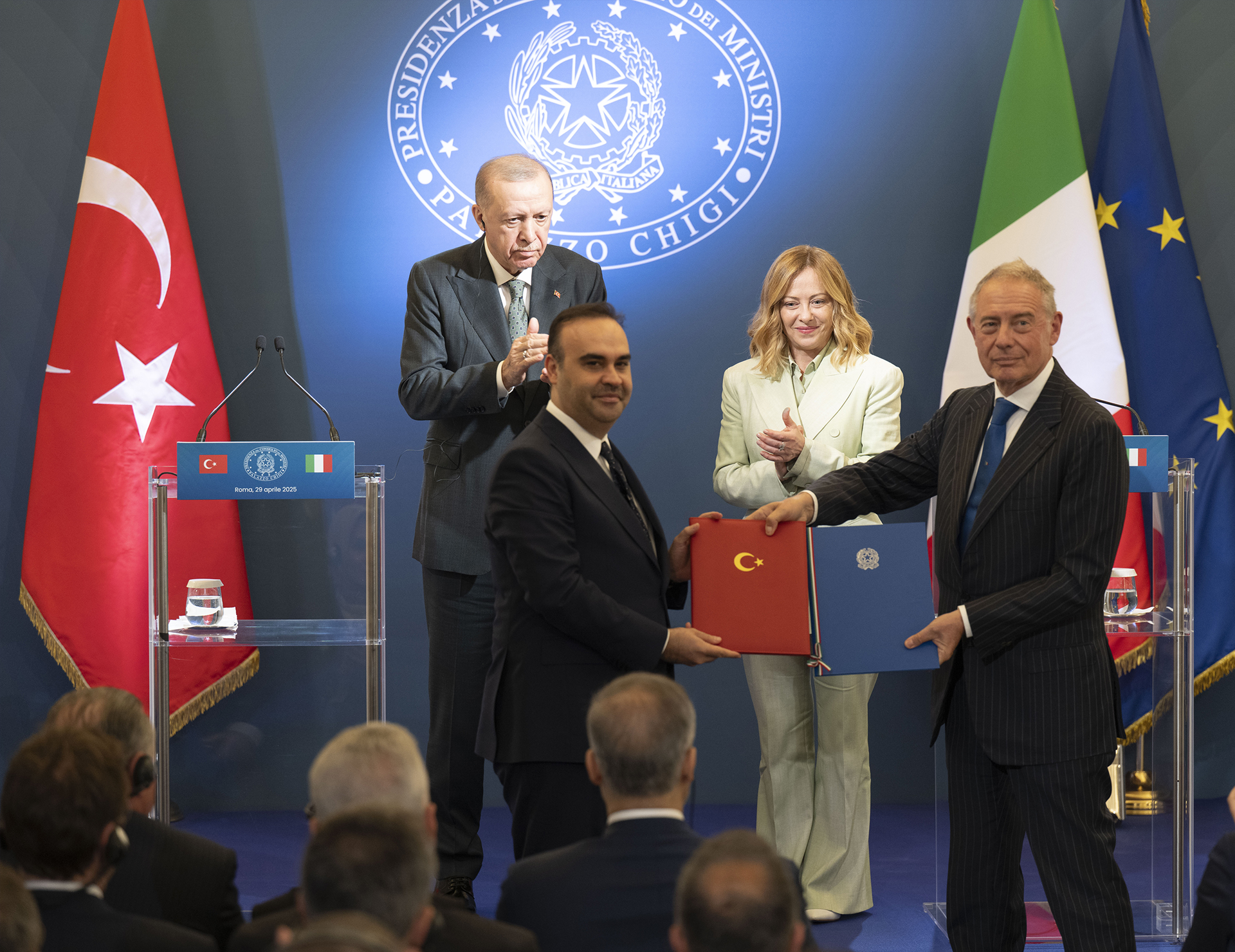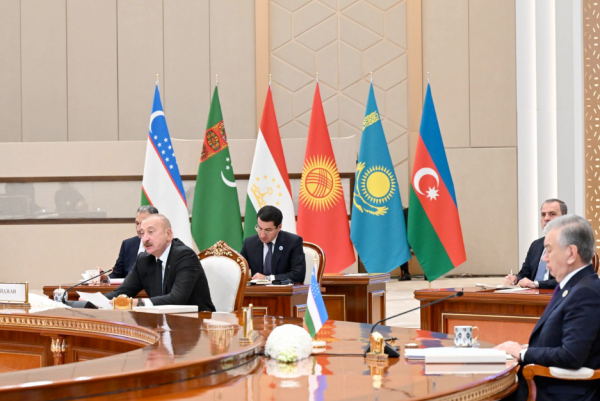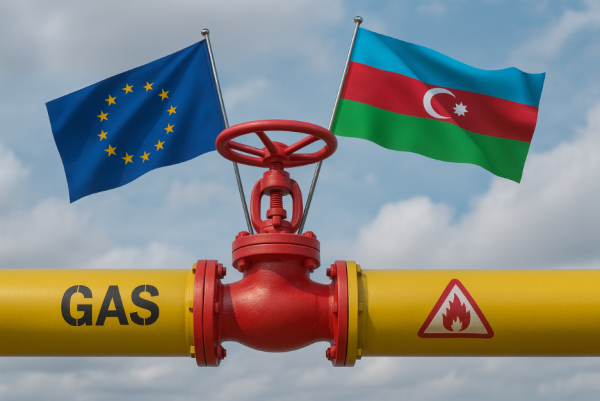Türkiye and Italy reshaping Mediterranean defense

On May 7, 2025, Italy and Türkiye convened their fourth intergovernmental summit, marking yet another step in their long-standing bilateral relations. First launched in 2008, these summits, which have been held irregularly until recently, have gained renewed urgency in today’s changing geopolitical environment. The summit’s discussions covered a wide range of topics, including the conflicts in Ukraine and Palestine, the stabilization of Libya and Syria, and regional development in Africa. On most fronts, Rome and Ankara found common ground, issuing a joint statement on the need for a long-term ceasefire in Gaza, support for Syria’s territorial integrity, and greater cooperation in managing irregular migration. Both leaders emphasized the importance of security and connectivity in the Mediterranean, presenting their countries as central players in the region’s evolving architecture.
The 2025 meeting was striking not only for its breakthroughs, but also for its context and implications. It was pragmatic, focused, and economically grounded. Indeed, over 500 companies from both countries participated, and ten new agreements and MoUs were signed on critical sectors like defense, aerospace, energy, infrastructure, and technology. A declaration was signed to increase bilateral trade from its current $32 billion to $40 billion annually, and new cooperation frameworks were announced in culture, sports, and people-to-people diplomacy, including the decision to jointly host the Euroleague in 2032. Yet the most consequential outcome was the official launch of a joint venture between Turkish drone manufacturer Baykar and Italian defense giant Leonardo in the field of unmanned systems, a move with strategic implications for European defense integration and Türkiye’s access to EU markets.
In many ways, this summit confirmed what has become evident over the past decade: Italy and Türkiye are learning to work together in a world increasingly shaped by strategic interests. Their economic interdependence has survived the Arab Spring, the Libyan crisis, and tensions in the Eastern Mediterranean, and is now flourishing. However, the summit's true significance lies in its timing. As Trump again threatens to pull the United States out of NATO, European countries are being forced to reckon with the unsettling possibility that the transatlantic security umbrella may no longer be guaranteed. In this uncertain environment, Türkiye, long considered a difficult ally, has re-emerged as a potential strategic pillar of European defense.
Pre-summit diplomacy
The summit had originally been scheduled for mid-April, but was postponed after Meloni flew to Washington to meet with Trump, following his announcement of new tariffs on European goods. The visit was an attempt to mitigate tensions and position herself as a bridge between Brussels and a U.S. political class increasingly hostile to the European Commission. While no major agreements were formalized, the meeting struck a positive tone and set the stage for future dialogue. Back in Rome, the summit with Erdoğan unfolded in an atmosphere of cordiality, highlighting the transformation of their political rapport.
In this regard, Meloni’s trajectory, from critic of Erdoğan’s “Islamization” of Europe when she was in the opposition to pragmatic interlocutor, reflects the evolving nature of politics in both capitals. Both leaders now operate from a position of conservative, nationalist realism, and their regular bilateral meetings suggest a convergence of political instinct as much as interest. As Germany’s influence wanes post-Merkel and France remains at odds with Ankara, Meloni sees an opportunity to act as a connector, not only between the EU and Türkiye, but between Washington and a partner she seems to believe is too important to ignore.
In the weeks following the summit’s postponement and ahead of its eventual date, Italian Defense Minister Guido Crosetto traveled to Ankara, where he was received by his Turkish counterpart Yaşar Güler. The visit served as a gesture of reassurance, showing Italy’s commitment to continued cooperation despite the rescheduling. Neither on that instance nor during the summit there was public mention of the imprisonment of Istanbul’s mayor and Erdoğan’s main political rival, Ekrem İmamoğlu. This suggests Italy is seeking to compartmentalize its relationship with Türkiye, prioritizing defense collaboration without entangling itself in domestic political controversies. The Crosetto-Güler meeting thus helped preserve the momentum of the bilateral agenda, laying the groundwork for the summit's more ambitious outcomes.
Defense integration
Beyond political symbolism, recent months have brought tangible developments that boosted the Italy-Türkiye partnership in the field of defense. On March 6th, Italy’s Leonardo and Türkiye’s Baykar signed a MoU to create a joint venture focused on unmanned technologies. The scope includes unmanned fighters, armed surveillance drones, and deep-attack drones, with a projected value of $100 billion over the next decade. This agreement marked a critical step in granting Türkiye direct industrial access to the EU defense market, a prospect that could unlock broader defense cooperation with other European actors. Moreover, Baykar recently announced a €40 million investment to acquire and revive Piaggio Aerospace, an Italian legacy company long known for its aviation and engine expertise, but which had languished in financial crisis since 2018.
The landmark cooperation between Baykar and Leonardo, initiated in part by the 2022 agreement on managing classified information in defense industry on the occasion of the Third Türkiye-Italy Intergovernmental Summit, reflects a broader shift in the European defense architecture, which is increasingly driven by urgency, pragmatism, and a search for autonomy. With Baykar’s acquisition of Piaggio Aerospace and the co-development of drone technologies, this partnership could serve as a prototype for a new kind of intra-NATO, extra-EU defense framework, where member states work around institutional inertia to address immediate threats. Riccardo Gasco, Phd Researcher in International Relations at Bologna University and Foreign Policy Program Coordinator at IstanPol, observes that “Italy is positioning itself as both a trailblazer and a spokesperson for engaging with Türkiye. This should not be viewed merely as a bilateral initiative, but as a European one, because Italy and Türkiye have developed the capacity to move beyond rigid multilateral frameworks. In this sense, Italy seems to lead a broader European interest for greater defense cooperation".
Additionally, Türkiye is currently engaged in negotiations to purchase 40 Eurofighter Typhoon jets. If finalized, this move would mark another significant step toward its deeper integration into the European security architecture. The Eurofighter consortium, of which Italy’s Leonardo is a key partner alongside Germany, the UK, and Spain, represents the pinnacle of European defense collaboration. For Italy, this would reinforce the growing bilateral trust in the defense sector, while also embedding Türkiye more firmly within Europe's collective defense ecosystem, despite lingering political frictions between Ankara and other consortium members.
Middle powers in a multipolar order
Apart from trade and diplomacy, the Türkiye-Italy partnership is also taking shape on the ground across multiple theaters. From Libya and Syria to the Sahel, Sub-Saharan Africa, and the Horn of Africa, Rome and Ankara are conducting quiet experiments in joint influence. These are not formal alliances, but rather ad-hoc alignments where the shared interests of migration control, stability and counterterrorism create overlapping spheres of cooperation. For instance, in Libya, both countries have learned to manage their differences post-2019; in Syria, Italy’s lower-profile engagement complements Türkiye’s more assertive posture; in the broader African continent, both countries are seeking to fill the vacuum left by the gradual retrenchment of Western powers, testing new forms of economic, security-related, and even cultural influence, with the Italian “Piano Mattei” serving as an epitome of these efforts.
This geographical spread reflects a broader trend: middle powers, once constrained by the bipolar and then unipolar order, are carving out new niches in a multipolar world. Italy and Türkiye, each with their own colonial legacies, defense industries, and migration challenges, find themselves as pragmatic partners in this unfolding realignment. What is also notable is the shift in European priorities. In the face of Russian aggression and U.S. unpredictability, foundational EU values like human rights, democracy, and rule of law are increasingly subordinated to geopolitical imperatives. The EU may not officially integrate Türkiye into its defense planning, but through deals like Leonardo-Baykar, the continent is quietly accepting Türkiye's role as both a regional power and a de facto security provider for Europe’s southern flank.







